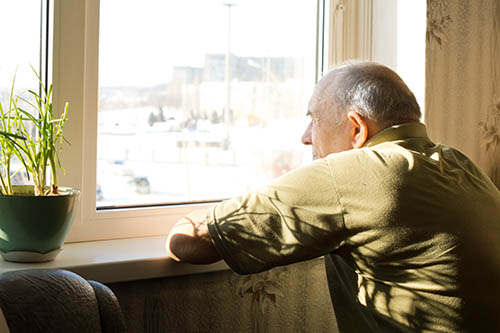Caring at Home: Something to Look Forward To

An aging country can’t rely solely on families, friends and volunteers to provide everything dependent elders need, however well supported they are.
A couple of people in my Facebook group shared a New York Times article from August 2017. The article pointed to the loneliness of caregivers, who shoulder heavy emotional and physical burdens that come from self-sacrificing for a loved one, patient, client or friend. Individual stories vary in their composition.
Carla posts that her best friend, someone she loves most in the world, continues her fight with cancer. There are good days and bad. Carla’s at work, while her mom keeps her friend company.
Then there are those who have left their jobs to tend to loved ones…moved and redesigned their lifestyles to accommodate a complicated situation…and those who manage a heavy caseload, where their patients look to them for more than they can reasonably provide.
So much comes with caregiving, that until you’re in the shoes—one way or another—you may not understand. And on the personal side, when caregivers stress to the brink, they start talking about a nursing home or another type of care facility, which does not always fulfill their expectations.
Years ago, I met a lady in a thrift store. In a wheelchair, she sat alone in the middle of the aisle, waiting for her daughter to come back. She was weak and especially frail.
“All I can do is sit in this chair,” she told me, and with a slight tilt of her head and a half-smile she said, “It’s not too good…not too bad. They take me out some.”
There we were. She told me about her tree—that she sits and watches from her bedroom window every day. We might not think too much of spending life most days being so careful, not moving too much for fear of an emergency; sitting, with only a tree to notice interesting things, comings and goings of a squirrel and some birds, and their work and drama.
Where Facebook and other social media channels are filling a need (and they have their risks) for some, they are not always the best tool or even accessible for those without WiFi and other devices. For people living one day at a time in hard and lonely circumstances, there must be something to stimulate the mind and look forward to.
 Meet Dr. Cynthia Green. She’s on the faculty of Mount Sinai School of Medicine and has extensive training in clinical psychology, brain health and in Alzheimer’s diagnosis and treatment. She’s made the what, why and how behind social connections in homecare her focus of an upcoming webinar, hosted by HomeCare. We hope you’ll join us Wednesday, March 21, 2018 at 1 pm Eastern to learn:
Meet Dr. Cynthia Green. She’s on the faculty of Mount Sinai School of Medicine and has extensive training in clinical psychology, brain health and in Alzheimer’s diagnosis and treatment. She’s made the what, why and how behind social connections in homecare her focus of an upcoming webinar, hosted by HomeCare. We hope you’ll join us Wednesday, March 21, 2018 at 1 pm Eastern to learn:
- The current science behind social engagement and cognitive wellness
- The benefits of promoting social engagement in the home health care setting
- Practical solutions for encouraging social engagement for their home health care clients
Signing up for the webinar is easy. Hope to have you on the line.

